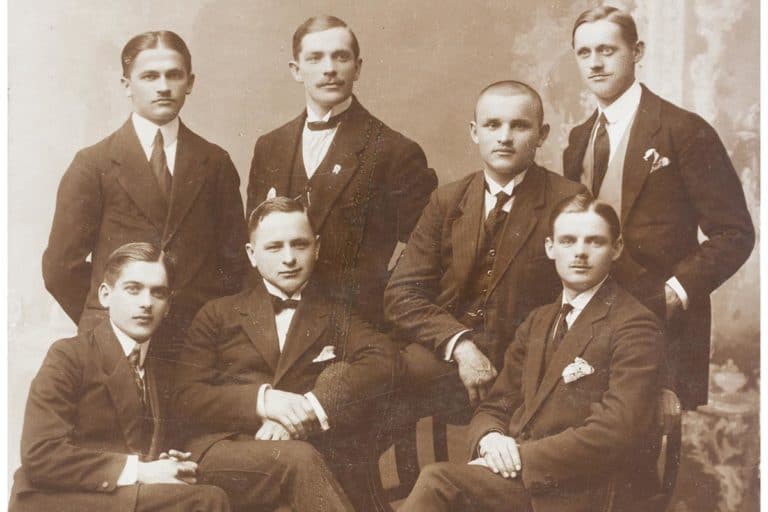Are these adults truly acting like reasonable people? Framing it as a battle to protect free speech, a child’s dignity is caught in the crossfire.
“Taken in total, throughout the ages, people with disabilities have been subjected to infanticide, starved, burned, shunned and isolated, strangled, submerged in hot water, beaten, chained and caged, tortured, gassed, shot, sterilized, warehoused and sedated, hanged, and used as amusement.” [Emphasis added.]
Are Comedians Always Reasonable People?
Ward v Quebec was framed as a battle between free speech and individual discrimination. At issue was the presumed right of a comedian to repeatedly, strongly, and publicly mock a child’s disability. Mike Ward’s argument was simply that Jérémy Gabriel was a public figure, and therefore fair game.
All parties agreed on the facts. The only question was whether or not the behaviour was discriminatory under the law.
Bullying Is Never Reasonable
You may or may not believe that free speech is threatened in Canada. If you do, I contend that the facts in Ward make it a very poor example from which to launch a defence.
If one of Jérémy’s classmates had stood on the school stage and delivered the same jokes, that student would have been held accountable. If the administration had not stopped it, they would have been liable for bullying or discrimination.
Reasonable People Have Already Defined Bullying
The dissenting justices in Ward noted that in the 2012 Bragg decision, the Supreme Court of Canada had:
[195] … developed a definition of bullying and held that because of the risk it poses to the psychological well-being of young people, its prevention could justify limits on the press’ freedom of expression:
As this case took place in Quebec, they also cited the nearly identical legal definition found in Bill 56:
Reasonable People Don't Cause Repeated Harm
Mike Ward’s defence team argued that his act was intentionally dark humour—not liked by all but still a valid form of entertainment protected by free speech, something any reasonable person would accept. The dissenting justices disagreed:
“[172] The manner in which the comments were delivered, and in particular their broad dissemination, is clearly relevant to the analysis. …
Each time the jokes were repeated, so too was the harm to Mr. Gabriel.
Mr. Ward’s comments were so widespread that Jérémy Gabriel could not ignore them. Neither could his classmates.
Mr. Ward’s jokes followed him to school where other children repeated the insults and magnified the mockery.
This was a direct consequence of Mr. Ward, a well-known figure in Quebec, distributing his routines about Jérémy Gabriel widely.
This must be considered as a factor in the determination of whether Mr. Ward’s comments were likely to cause serious harm to a reasonable person in his circumstances.”
Reasonable People Would Not Bear It
Even recognizing the importance Canadians place on both free speech and artistic expression, the dissenting justices found that no reasonable person would be expected to take the dehumanizing jokes:
“[218] A reasonable person in Mr. Gabriel’s circumstances, even one attuned to the importance placed on freedom of expression, including artistic expression and satire, would not be expected to bear the speech at issue in this case (Calego, at para. 99).
This is especially so given the circumstances …
- Jérémy Gabriel was a child at the relevant time,
- the jokes were disseminated broadly to a wide swath of the public over the internet and
- they played on harmful dehumanizing attitudes towards children with disabilities.
Were the facts different, for example,
- if Mr. Gabriel had not been a child,
- if the jokes had not been as broadly disseminated such that Mr. Gabriel could have found refuge from their harmful impact,
- or if the jokes themselves had not tied directly into the most repugnant attitudes concerning the place of children with disabilities in our society,
the high threshold set out in Calego may not have been breached.
But on these facts, Mr. Ward has failed to justify his prima facie discriminatory conduct …” [Emphasis added.]
Where Do You Stand?
In Harper Lee’s To Kill A Mockingbird, Atticus, the lawyer appointed to defend an innocent Black man, was trying to explain the jury’s unanimous guilty verdict to his own ten-year-old son. Well-versed in courtroom proceedings, and readily understanding the facts of the case himself, Jem knew beyond a reasonable doubt that Tom Robinson was innocent. But reason, Atticus was telling him, is not a given when it comes to discrimination:
The Cambridge Dictionary defines reasonable as “based on or using good judgment and therefore fair and practical.”
In their Syllabus (written summary placed before the details of their decision), the majority in Ward stated:
Considering myself to be a very reasonable person, I strongly disagree: I believe it is the majority that has lost sight of reasonableness. Nonetheless, the SCC decision has put me on the other side of the fence. How did we get here, and where do you stand?
The chapter concludes in the next post.

